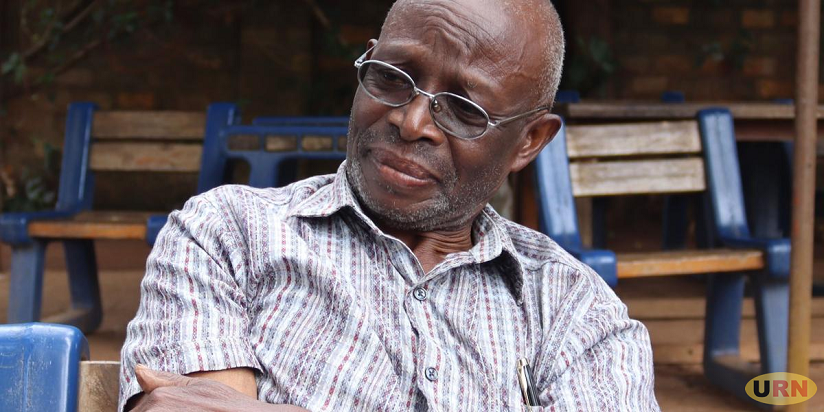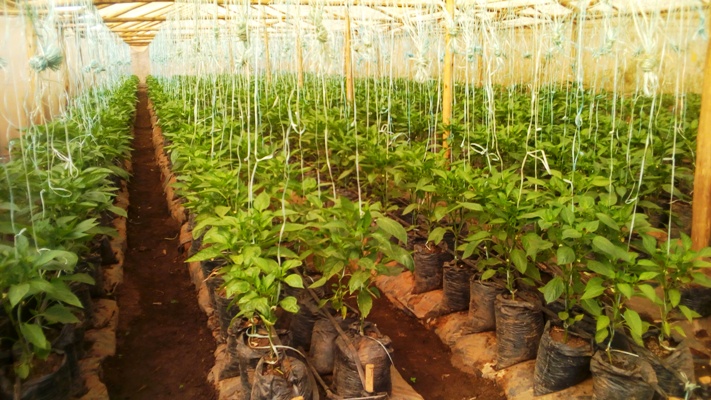Adongo Mariya and her colleagues stand by their bar soap making machine in Kamdini Oyam District. With soaring global palm kernel prices, the women have found lard as a cheaper alternative.
Some women in Northern Uganda are using pork lard as one of the raw materials for making laundry soap to get an extra income. With the price of laundry soap increasing, the women say the homemade soap has also helped them to meet their hygiene needs.
41-year-old Adong Mariya is one of the women in Kamdini sub-county in Oyam District who has seen an opportunity in making soap from pig fat or lard as an ingredient.
Adong is one of the many women who were trained by BRAC to make soap from locally available chemicals using the cold-process method. This artisan way of making soap uses ingredients like palm kernel oil as well as animal fat like pig lard.
She and other members of her village saving group were in the past buying palm kernel oil from Masindi district but its price drastically shot. According to Adongo, a 20-liter jerry can of palm kernel oil has more than doubled since early January this year.
“Using palm oil became expensive for us and the profits declined. But BRAC trainers had also trained us how to use fat from pork. It is what we are using to make soap now” said Adongo in her native Lango language “We have a ready market from within the village. So we are using some at home while the rest is sold within the village to earn us some money.”
The mother of three told URN that at first, she thought that the art of making bar soap was too complicated but said it is easy provided one knows how to mix the chemicals with palm kernel or oil pig lard.
Adongo and her colleagues buy pig lard from pork sellers in Kamdindi and generally Oyam district. She told URN that they were trained on how to purify it before it can be added to other ingredients to make bar soap.
The shape of the whitish or yellowish bar soap is not even like the factory-made ones but Adongo says it is not very different when one uses it for washing. With the price of factory-made soap being retailed at about eight thousand shillings, Adongo says theirs is sold at five thousand shillings.
Lard or pig fat is crucial during the saponification process where chemicals like sodium or potassium salts mix with fatty acids to form soap. Vegetable oils and animal fats are the traditional materials that are saponified. The mixture is then stored in a cool place to allow it to cure before it is ready for use.
BRAC Uganda has trained hundreds of women in Nwoya, Oyam, and Gulu as part of the Village Savings Loan Associations (VSLA). The idea is that persons being helped to get out of extreme poverty should live on handouts but be supported with a skill from which they can generate income. There are 84 VSLA groups trained by BRAC to make soap as income-generating ventures for mainly women.
Shammah Arinaitwe, a Technical Specialist with BRAC Uganda, told URN that soap-making was chosen to ensure that women continue earning even during the times when they are not busy in the garden.
“We realized that we have given a lot of farm enterprises that require someone to continue farming. But with continuous climate change, we had to find out how to encourage and boost off-farm enterprises,” Arinaitwe “To that end, we looked for enterprises that people can do but have the market in the village. So groups have been able to make soap”
While pig lard makes good soap even compared to using palm kernel oil, someone could develop goose pimples if told that their bar soap contains pig fat. But Arinaitwe says the cultural and religious concerns aside, the women soap makers have found lard cheaper.
“I will give an example, one of the ingredients for making soap is palm kernel oil but in Uganda, we produce not enough. Most are sourced from Kasese and a lot of it is imported from Congo. So what does that mean? From the economic point of view, it will increase the price. So what communities have done is to look out for available raw material,” she explained.
With the high cost of palm kernel oil derivatives used in making soap, Arinaitwe says pork lard has become a derivative of choice for women soap makers like Mariya Adongo.
“So what the groups have done is to use that fat to make soap. They tried out how it would go and they found that it makes good soap for them. So they go and collect the fat and they clean it to use it as an oil base for making soap,” Said Arinaitwe.
Mariya Adongo told URN that she has been making soap for over a year now and it has made her village Loan Savings Association continue operating.
Her group is one of the many that have been registered in Oyam to benefit from the Parish Development Model funds from the government.
-URN





